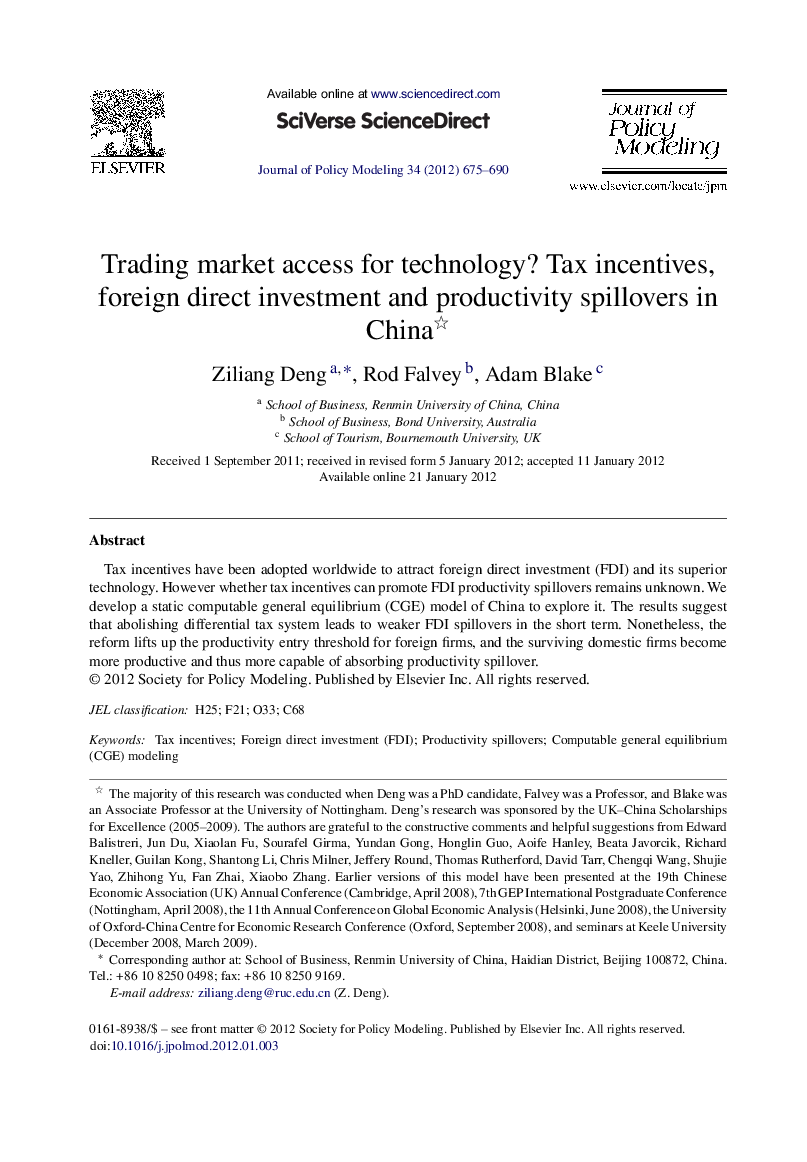| Article ID | Journal | Published Year | Pages | File Type |
|---|---|---|---|---|
| 968351 | Journal of Policy Modeling | 2012 | 16 Pages |
Abstract
Tax incentives have been adopted worldwide to attract foreign direct investment (FDI) and its superior technology. However whether tax incentives can promote FDI productivity spillovers remains unknown. We develop a static computable general equilibrium (CGE) model of China to explore it. The results suggest that abolishing differential tax system leads to weaker FDI spillovers in the short term. Nonetheless, the reform lifts up the productivity entry threshold for foreign firms, and the surviving domestic firms become more productive and thus more capable of absorbing productivity spillover.
Related Topics
Social Sciences and Humanities
Economics, Econometrics and Finance
Economics and Econometrics
Authors
Ziliang Deng, Rod Falvey, Adam Blake,
